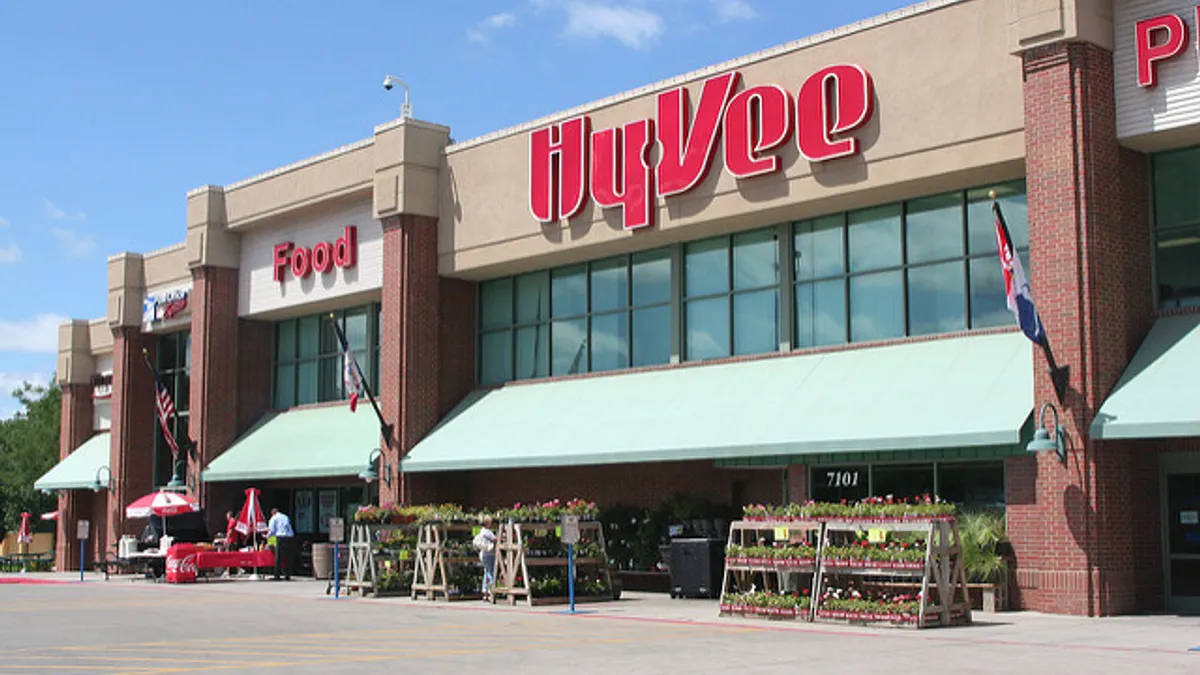Dive Brief:
- A Hy-Vee store in Davenport, Iowa grows up to 15 pounds of produce each week on hydroponic “grow walls” positioned outside the store and inside the produce department, according to Inhabitat. Basil, lettuce and mint are raised on the grow walls.
- Fridays Fresh Market, which built the grow walls out of recycled plastic bags and installed them in the store, also maintains the walls and picks and packages the produce.
- FFM’s hydroponic process grows produce faster and uses 90% less water than traditional growing methods, according to owner Andrew Freitag.
Dive Insight:
Hydroponically grown fruits and vegetables have been showing up in more and more produce departments in recent years, at a scale much larger than Hy-Vee’s. BrightFarms, which operates a network of high-tech greenhouses across the country, has contracts with Giant, Walmart and Mariano’s, among others. In New York and Chicago, Gotham Greens supplies local Whole Foods, Jewel-Osco and other stores with produce grown in rooftop greenhouses.
The ability to get fresh, local produce year-round is a major plus for grocers. But hydroponic businesses have been difficult to scale because of the high overhead costs that come with operating greenhouses and vertical farms. Still, as operations become more cost-efficient over time, hydroponic growing solutions will likely expand to meet consumer and grocer demand.
Without the need for soil or sunshine, hydroponics make for good displays, as Hy-Vee has shown with its Davenport store. This is a good way for retailers to display their commitment to fresh, and to offer a bit of theater, as well.
And Hy-Vee isn't the only one. A Central Market store in Dallas features a 53-foot shipping container — or “Grow-tainer" as it’s called — that grows fruits and vegetables that are then sold in the produce department, in a section labeled “Store Grown Produce.” A Rouses store in New Orleans features a rooftop aeroponic garden, while Bi-Rite operates its own farm and also grows herbs and raises bees on the roofs of its two San Francisco stores.
Although many of these ultra-local ventures aren't scalable or profitable, the returns come through offering a unique experience at a time when shoppers are looking for something different. When marketed well, these operations can also convey a fresh appeal that can extend throughout the produce department and beyond.









